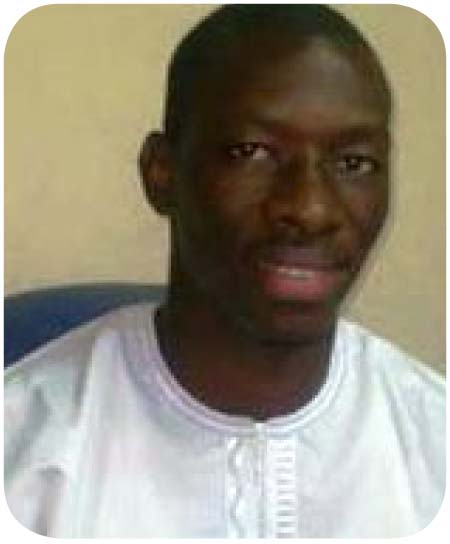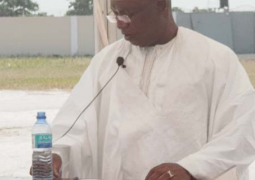
Magistrate
Janneh-Njie of the Banjul Magistrates’ Court on 8 February 2017 ruled against
the prosecution, in the case involving Ebrima B. Njie and Edrisa Manga, both
prison officers.
Ebrima
B. Njie and Edrisa Manga were alleged to have aided Abdoulie Ceesay, former
Managing Director of Taranga FM Radio, to escape from custody.
The
ruling followed the objection made by the defence counsel, Patrick Gomez, when
the prosecutor applied to tender the cautionary statement of Ebrima B. Njie.
The
defence counsel argued that the document sought to be tendered by the
prosecutor should be rejected by the court, because no proper foundation had
been laid.
When
the case was called, prosecutors Jarju and Jaiteh announced their
representation for the state, while Lawyer Patrick Gomez represented the
accused persons.
Ebrima
Bah, the sixth prosecution witness, was asked to tell the court what he knew
about the case. He said he lives at Sukuta and works at the Gambia Police Force
under the Serious Crime Department.
He
testified that he knew the accused persons, adding that on 20 April 2016, the
police and the NIA joined a panel where he was ordered to obtain cautionary and
voluntary statements from the accused persons.
He
further stated that he endorsed and read the statements to the accused persons,
who also thump-printed.
He
said he could identify the documents if they were shown to him, which he did.
At
that juncture, prosecutor Jaiteh applied to tender the cautionary statement of
Ebrima B. Njie.
Lawyer
Patrick Gomez objected to the application made by the prosecutor.
He
argued that the document had not been obtained voluntarily, which was
fundamental.
He
stated further that the document sought to be tendered did not bear the
letterhead of the Gambia Police Force nor did it have its stamp, referring to
section 31 of the Evidence Act.
He
adduced that according to section 31 of the Evidence Act, cautionary and
voluntary statements could be in a form of oral or written statements, which
should be done voluntarily by the accused.
He
further argued that the accused persons were under threat and were not asked if
they wanted their statements to be recorded.
He
urged the court to disallow the application made by the prosecutor.
Prosecutor
Jaiteh replied that the argument of the defence counsel was not based on law,
referring to section 31 (2) of the Evidence Act.
He
stated further that despite the fact that the accused could not write his
statement, what was written was translated to him in a language he understands
in the presence of an independent witness.
He
submitted that the said statement sought to be tendered was valid by virtue of
section 31 (2) of the Evidence Act.
He
further stated that the argument of the defence was a mere technicality, urging
the court to disallow the objection of the defence.
Since
the document sought to be tendered was rejected by the court, the court ordered
for a voire dire (trial within a trial) to determine the voluntariness of the
cautionary statement.
In
the voire dire, the witness said he did not know how long the accused persons
were in custody.
He
denied that the accused persons were detained several times before obtaining
their statements.
He
also denied that he forced Ebrima B. Njie to write his cautionary statement.
Hearing
continues.


